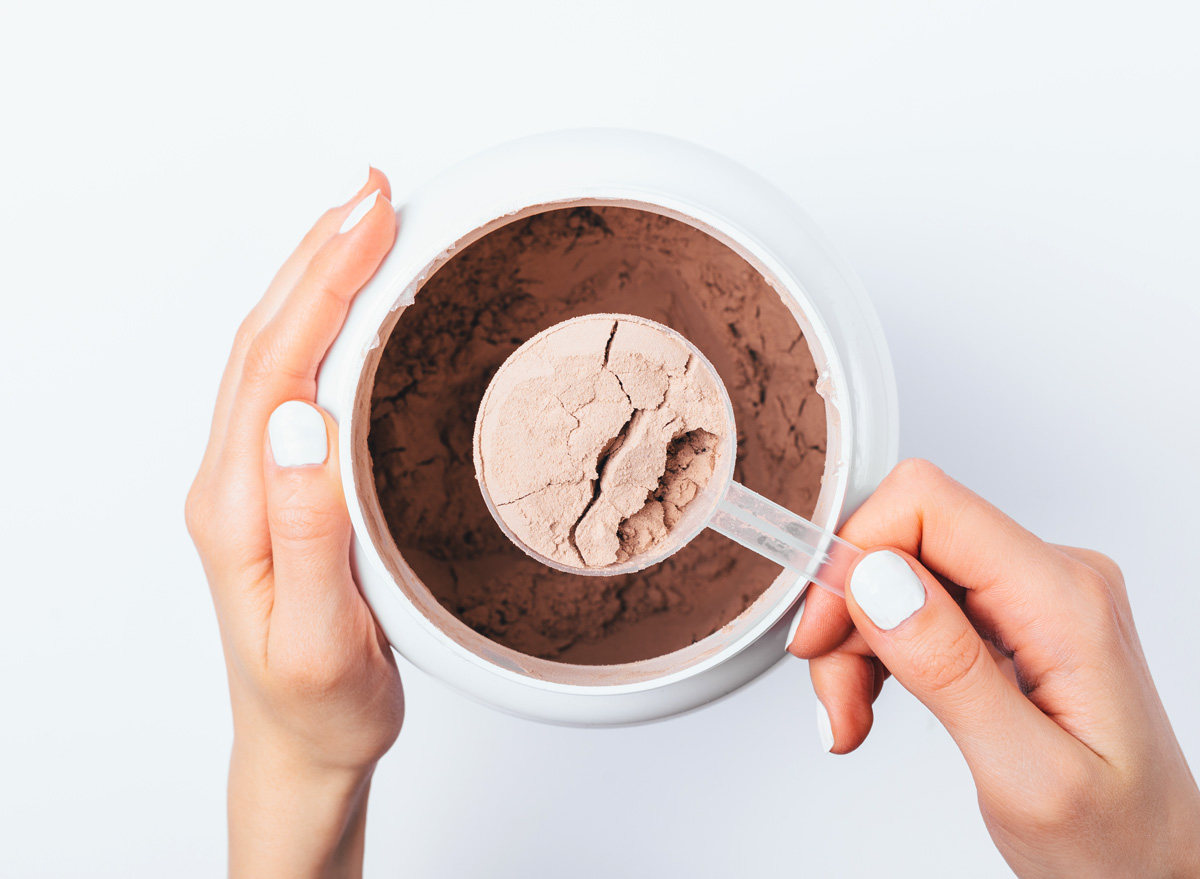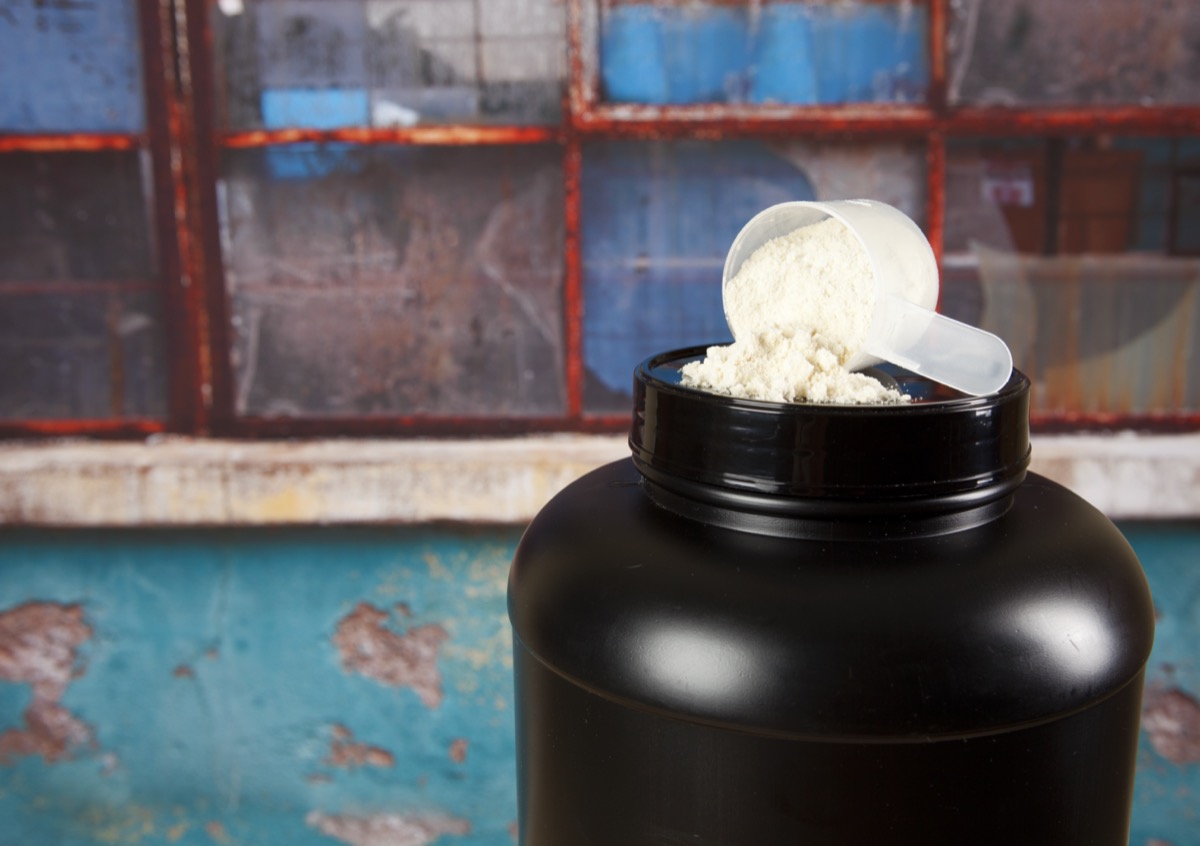What Happens To Your Body When You Eat Whey Protein Powder

After you've completed a strenuous workout, the first thing you want to do is replenish your muscles with an appropriate amount of protein and carbs. An easy way to do this is to whip up a whey protein shake, but is it the best move for your overall health?
Registered dietitians and other health experts advise against eating more than 30 grams of protein per sitting for the average person, as that's about how much the body can digest at a time. Unlike carbs and fats, protein cannot be stored in the body. Luckily, protein powders contain between 12 and 30 grams of protein per serving (between 1-2 scoops), with whey-containing varieties packing a little more per serving than plant-based ones.
Still, whey protein is not for everyone. In fact, it can lead to some undesirable side effects and may even cause you to consume potentially harmful substances. Below, we detail five things that could happen to your body when you eat whey protein powder. And then, be sure to read 15 Underrated Weight Loss Tips That Actually Work!
You may become bloated.

Eating too much whey protein in one sitting can leave you feeling bloated and even give you bad gas. This is especially the case for those who have irritable bowel syndrome (IBS) as well as lactose sensitivities. Whey protein powder is a dairy product, so it does contain lactose: a type of sugar many people have a hard time digesting. Common side effects of lactose intolerance include bloating, gas, and stomach cramps.
For a list of foods that have the opposite effect, be sure to check out 21 Easy Ways to Debloat After Overeating.
Consequently, you could have stomach pains.

Whey protein concentrate may also cause GI discomfort in those with severe lactose intolerance, as most dairy protein powders are made from proteins in milk whey, which contains lactose. Still, the Whey Protein Institute claims that whey protein concentrate is said to contain very little lactose, so just be sure to read the label before purchasing!
A plant-based protein powder such as Orgain Organic Protein may be a better option for those with lactose sensitivities, as it's made primarily of pea protein and brown rice protein.
You could support muscle growth and maintenance.

Whey protein powder has a high concentration of branched-chain amino acids (BCAA): amino acids that promote muscle recovery and synthesis. In fact, studies have found that taking whey protein powder can promote even more muscle protein synthesis in those who consume it as compared to those who use plant-based soy.
You may accidentally ingest too much sugar.

Remember, your whey protein shake shouldn't taste like a sugary milkshake, but the reality is, several brands of protein powders pack a lot of added sugar. According to the American Heart Association (AHA), recommends that women consume no more than 25 grams (or 6 teaspoons) of added sugar each day whereas men should cap their intake at 36 grams (about 9 teaspoons) per day to promote good heart health.
For context, some protein powders can pack as much as 23 grams of added sugar per scoop, so be sure to read the nutrition label before dropping cash on a big ole container of protein powder.
You could be exposing yourself to toxins.

Unfortunately, whey protein powder can pack some scary ingredients. According to a study conducted by the Clean Label Project, many of the 134 top-selling protein powder products had high levels of toxins, which include heavy metals. In fact, chocolate protein powders may have the toxins lurking in them of any flavor.
If you do opt for whey protein powder, consider reading 11 Reasons You Should Use Grass-Fed Whey Protein Powder.








